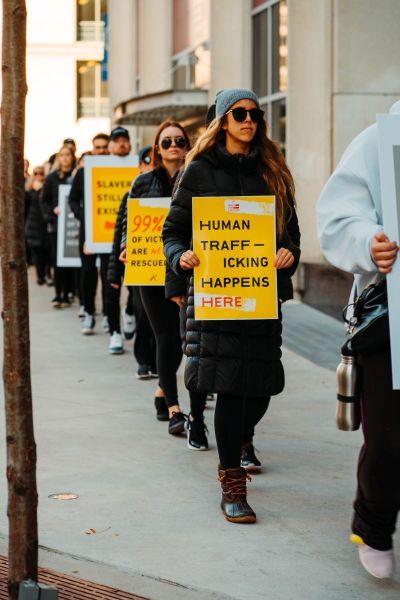Israel warns of potential trafficking, exploitation of surrogate mothers

An Israeli government agency is warning about the potential human trafficking and exploitation of surrogate mothers in some African and European countries, raising concerns about the involvement of criminal organizations.
Last month, the Israeli Justice Ministry and its National Anti-Trafficking Unit shared information about legal issues surrounding the surrogacy process in Albania, Kenya and Northern Cyprus.
As The Jerusalem Post reported Sunday, the legal concerns addressed in NATU's announcement included "indications of a violation of the basic rights of the surrogate women and their dignity, while objectifying them and limiting their freedom." The unit also noted, "in serious cases, there is even a suspicion of human trafficking."
Center for Bioethics and Culture Network President Jennifer Lahl believes that Israel, a country where surrogacy is legal, should also focus on the rights of women in all places that permit the practice.
"Surrogacy reduces women down to a 'womb for rent' or 'gestational carrier.' The very nature of surrogacy objectifies women and children," Lahl told The Christian Post in a Wednesday statement. "One can read a surrogate contract executed in the United States, a very surrogacy-friendly country, and see that her freedom is limited as she is contractually bound to follow the whims and wishes of the purchasing parents."
NATU highlighted concerns about the regulations surrounding surrogacy procedures in these three areas, which somesources have previously indicated are not very restrictive.
According to the anti-trafficking unit, "substantial concerns" have been raised about the involvement of criminal organizations taking vulnerable women from their families in foreign countries, who are forced into prostitution before, after or during the surrogacy procedure. NATU also questioned the legitimacy of the agreement signed by women who act as surrogates.
"It is possible to consistently find indications of their exploitation as part of the procedure," the anti-trafficking unit stated, according Jerusalem Post. NATU added that such indications "raise serious doubts regarding the free will of the surrogates to knowingly enter into [their] agreements [as well as] substantial concerns regarding the scope of control over them."
In Israel, the intended parents involved in the surrogacy process must be at least 18 years old, and one parent typically must be under the age of 54. One of the reproductive cells used to impregnate the surrogate via in vitro fertilization must belong to one of the intended parents.
"In a situation where the intended parents are a male couple (or both intended parents have male reproductive cells) — the sperm used for fertilization will belong to one of the intended parents," Israel's regulations on surrogacy state.
"Sperm from both men cannot be involved in the same fertilization, and it will not be possible to deposit embryos from two intended fathers in the same treatment cycle," the guidelines continue. "If it is requested to carry out different cycles of fertilization treatment with eggs fertilized with different sperm, the consent of the surrogate must be obtained in advance and within the framework of the agreement."
Regarding surrogacy practices in the United States, Lahl recently spoke with a woman who agreed to act as a surrogate for a gay couple in California. In an interview posted to YouTube Saturday, the woman known only as Brit explained that she received a breast cancer diagnosis in May when she was 24 weeks pregnant with the couple's baby.
In an op-ed published last week, Lahl wrote that the case is an example of the ethical issues involved in the surrogacy process, such as undermining a mother's right to seek care when it conflicts with the interests of the intended parents.
Following the diagnosis, the two dads insisted that Brit's oncology team speak with them every week, which she found "intrusive." While Brit promised to relay information to them, she said that the gay couple threatened her oncology team with lawsuits.
After an MRI revealed Brit's cancer had spread, erasing the option of undergoing chemotherapy that was safe to receive during pregnancy, the fathers insisted that Brit should have an abortion.
The gay couple did not want Brit to deliver early, as they had heard this could result in the baby having disabilities or "no chance at life." The two dads allegedly rejected the idea of allowing someone to adopt the premature baby, saying they didn't want "their DNA out there."
The mother said her oncology team told her that they would have to seek legal help, as they were unsure if they could offer Brit chemotherapy without permission from the couple.
"I felt like just a rented uterus," she said. "I felt like they only cared about their baby, which I expect them to care about their baby. I obviously cared because I didn't want anything to happen to the baby either. But they didn't care. I felt like they didn't care about me at all."
Brit eventually found a hospital that would induce labor early, giving birth on Father's Day at 25 weeks. The baby died shortly after the delivery, and the two men opted to have the child cremated.
Samantha Kamman is a reporter for The Christian Post. She can be reached at: samantha.kamman@christianpost.com. Follow her on Twitter: @Samantha_Kamman



























